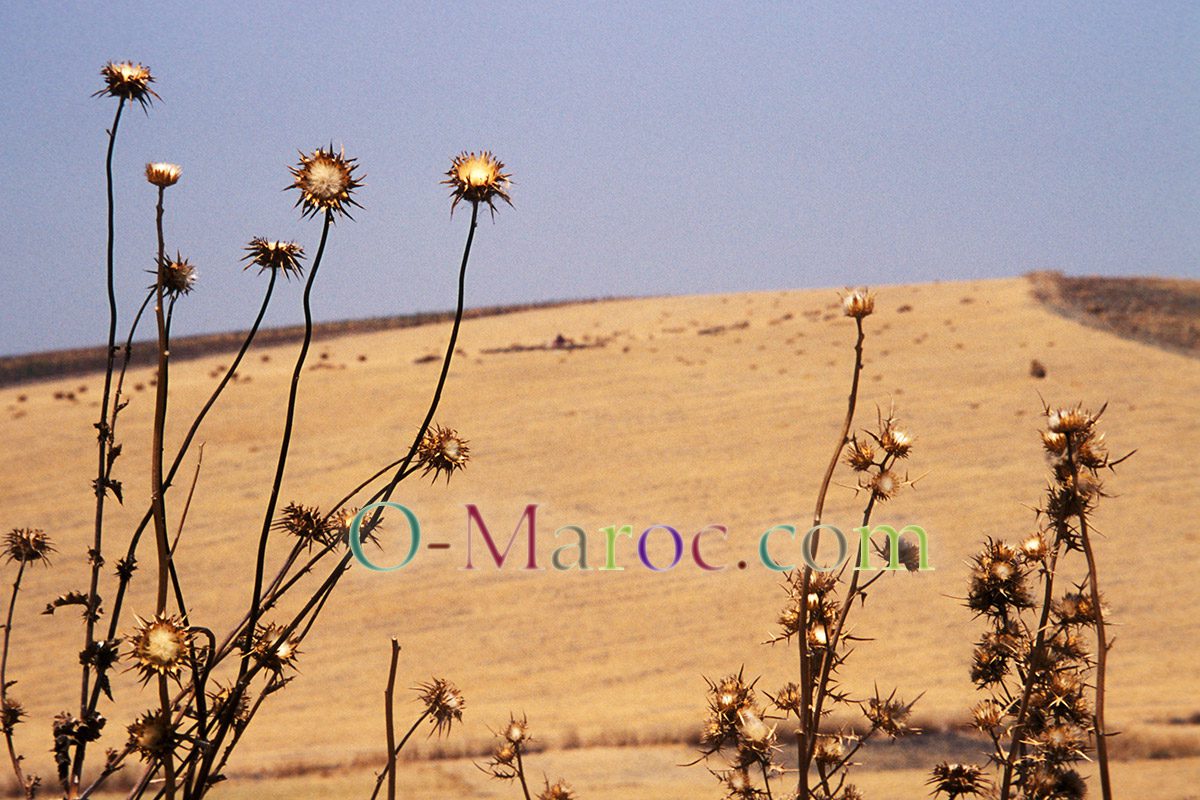Autumn has long been my favourite season. Summer seemed a bit dull to me, with its cloudless blue skies, its daily beach activities and the distance from my girlfriends.
I enjoyed going back to Paris, playing with the fallen leaves and being invited back to my grandmother’s favourite tea room, with a log fire in the fireplace and a good cake that I couldn’t decide which one to have.
Then I went to live for a few years in ‘mid-European’ countries, and I quickly began to hate autumn, which heralded a long, cold, wet, snowy winter that would easily drag on until April. The days became frighteningly short, autumn came too quickly, was too short.
Since I’ve been living in Morocco, autumn has once again become my favourite season. It’s totally different from the autumns of my childhood. It comes after a much longer summer, which starts to dry out the grasses and burn the earth in May, when the crops are harvested. When you’ve lived in Morocco for a long time, you feel particularly out of step with the cycle of seasons that you experienced in Europe.

A few days ago, I was in Casablanca, at the end of the afternoon, by the beach. The light of the setting sun was golden. I had just passed a sign indicating 31° C. I was relaxing in my TShirt, and so were my neighbours.
As I surfed, I could see the weather in France, with reports of bad weather, snow in the mountains, rain… and I was particularly enjoying my idleness!
But it’s not just the temperature difference that counts. The further down you go towards the equator, the less marked the seasons become, and this is already clearly the case here compared with France. As Morocco is “a cold country where the sun is hot“, we have real winters, especially in the Atlas Mountains, where the snow can fall quite heavily.
Here, autumn passes gently, and is marked more by greening than anything else. Here, with the exception of the northern fringe of the country, there are no golden leaves falling, many trees remain green all year round, and bougainvilleas and jacarandas remain in flower, sometimes all year round. Some of the vegetation burnt down during the summer, and anything that isn’t watered has already turned straw yellow well before autumn arrives.

That’s why the arrival of autumn rains, or simply the decrease in sunshine, gives us a “green autumn”.
Temperature differences are also smaller. Although the temperature drops rapidly after sunset, and even more so in the mountains and in the desert, during the day our North African sun is always very hot. And it has to be said that in the evening, in the middle of November, a jumper is often all you need to feel comfortable on the terrace.
Strangely enough, while our customers come to forget the dreariness and soak up the sun before the depths of winter, we like to dream of the cold, of warm clothes, of rediscovering the pleasure of wrapping ourselves in a scarf, of moments of cocooning by the fireside, of missing the view of the frost-white countryside…

Everyone experiences it in their own way. My two bouts of nostalgia for the country come in the autumn, and at Christmas time, which I didn’t really celebrate, but I loved the omnipresent atmosphere. Some French people living in Morocco are looking for a holiday in the snow, which is the opposite!
 A typo or syntax error? You can select the text and hit Ctrl+Enter to send us a message. Thank you! If this post interested you, maybe you can also leave a comment. We'd love to exchange with you !
A typo or syntax error? You can select the text and hit Ctrl+Enter to send us a message. Thank you! If this post interested you, maybe you can also leave a comment. We'd love to exchange with you !




